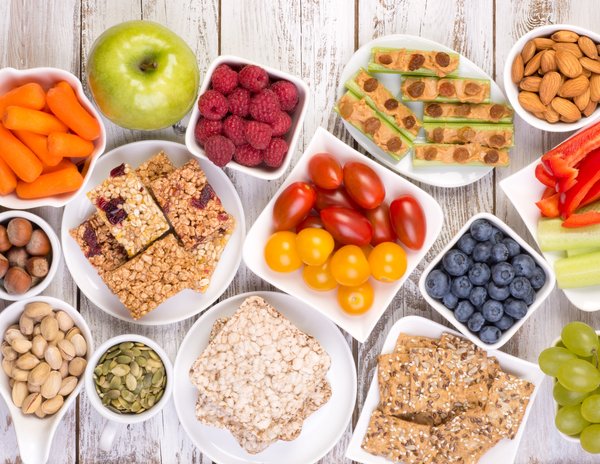Top 10 Questions About Food for Young Children
Contributed by: Dr Dave Ong
Dr Dave Ong from Kids Clinic @ Punggol answers the top 10 commonly- asked have when it comes to nutrition for their toddlers.
1. My child is a picky eater. How can I encourage my child to eat more fruits and vegetables?

- Add a fruit or vegetable as part of every meal or snack, e.g. putting fruit in breakfast cereal or in the lunch box
- Demonstrate to your child that you are a good role model by eating more fruits and vegetables yourself
- During grocery shopping with your child, start at the section with fresh fruits and vegetables, and engage your child in the process to get them interested in learning about fruits/vegetables
- Minimise unhealthy food at home, such as ice cream, chips and cookies so that they cultivate the habit of making healthy food choices
- Minimise the drinking of fruit juices, as that is less healthy than eating the whole fruit itself
- Eat as a family regularly, because this helps the child to learn to eat more fruits/vegetables and less of unhealthy food, according to research.
2. Should toddlers snack between meals? How often should they snack?
- Most children are ready for a routine comprising meals and snacks by the end of their first year of age.
- Attempt to establish a routine of meals and light snacks every 2-4 hours, with snacks eaten at least 90 mins to 2 hours before main meals, so that they do not lose their appetites. Do set snack times and avoid letting your child eat continuously through the day.
3. What are some healthy snacks for my toddler?

- Fruits & vegetables such as sliced apples, berries, sliced avocado, raisins or other dried fruits
- Whole grains such as multigrain dry cereal, whole grain crackers, granola, rice crackers
- Dairy products such as yoghurt, cheese, yoghurt pellets
4. Is it normal for toddlers not to eat?
Yes it is very common and normal for toddlers to have an erratic appetite. Liking a dish one day and then refusing it the very next day is a common behaviour, in which the toddler exhibits independence. You should provide healthy food options for your child, and let him/her decide how much he/she wants to eat.5. How can I make my child eat or increase his/her appetite?
- Your child must have breakfast, in order to increase his/her metabolism
- Feed your child every 2-4 hours
- Offer healthy snacks/small bites in between meals
- Avoid excessive milk, food with strong odours or flavours, or excessively oily food
- Let your child play/exercise more
- Create a happy and positive eating environment – avoid punishment and bribing but rather use positive words. Have patience and also show how much you enjoy eating with him/her
- Let your child eat in a well ventilated and cool environment, avoid distractions such as videos or toys
- Let your child take the lead – allow playing with the food and accept some mess while your child learns to eat; if your child appears cranky or uninterested, take the food away.
- Set a time limit of 20-30 mins for a meal. Once the time is up, remove the food and do not offer an alternative snack/meal
- Try fruit-based desserts
- Keep serving your child new food. Bear in mind that it can take up to 10-15 tries before your child accepts it
6. How can I boost my toddler’s immune system?
- Serve more types of colourful fruits and vegetables
- Breastfeed your baby for at least 4-6 months initially
- Try a probiotic supplement
- Try a supplement containing Vitamin C and zinc
- Apart from your child’s diet, also make sure that your child is fully vaccinated, including the annual flu vaccine. Lifestyle wise, ensure they have adequate sleep and exercise.

Personal hygiene is also very important – teach your child to wash hands regularly with soap (before and after each meal or snack, after coming back from school, after playing outside, after using the bathroom, after blowing their nose, after touching various toys or playing with the pets), and try to avoid any form of smoke exposure, especially in the home environment
7. What foods are good for a child’s growth?

- Berries (e.g. strawberries, blueberries)
- Eggs (both egg white and egg yolk)
- Cow’s milk
- Peanut butter
- Soy products e.g. soy milk, tofu
- Wholegrain food (e.g. wholegrain bread)
- Meat (e.g. red meat such as beef)
- Fish (e.g. oily fish such as salmon)
- Cheese
- Broccoli
- Colourful fruits and vegetables
8. What vitamins and minerals are good for a child’s growth?
- Iron (which can be found in red meat, spinach, fortified cereal, fortified milk)
- Calcium (which can be found in e.g. milk, cheese)
- Vitamin D (which can be derived from sunlight exposure, eggs, salmon, fortified milk)
- Vitamin B complex (which can be found ingrains, eggs, meat, fish)
- Probiotics can also be taken as they have positive effects on the child’s gut health, immunity, reduction in certain acute infections. They may also help in the prevention of certain chronic disease in the future. Do consider a probiotics supplement for your child early in life.
9. Is it ok for my toddler to consume salt (sodium)?
Yes, your child requires a moderate amount of sodium to help with salt and water balance in the body and to help with the function of his/her nerves and muscles. However, they do not need more than 1500mg of sodium per day. Packaged foods containing more than 400mg of sodium are considered as high sodium foods.10. My child only drinks sugary drinks, what can I do?

It will take some time and effort to stop this habit. Begin by diluting the drinks with water, and increase the amount of dilution gradually over time. Stick to healthier options, such as plain water, whole milk and unsweetened soy milk, as much as possible
About Author
This article is written by Dr Dave Ong, who completed his MBBS in the National University of Singapore (NUS) in 2009. He received his post-graduate specialist training in Paediatric Medicine at the National University Health System (NUHS) and was awarded the combined Master of Medicine (Paediatric Medicine) and Membership of Royal College of Paediatrics and Child Health (MRCPCH, United Kingdom) in 2014. Dr Ong is competent in paediatric and neonatal resuscitations for acute emergencies and has a special interest in respiratory, ear-nose-throat (ENT) and skin conditions.
Kids Clinic @ Punggol
681 Punggol Drive #03-11 Oasis Terraces Singapore 820681
Tel: (65) 6817 8885
Tags:
- Parenting journey


